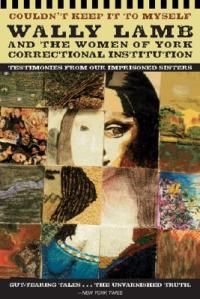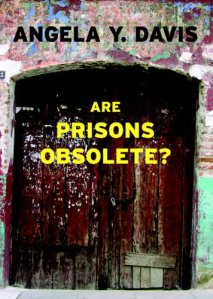1. Sheryl Sandberg’s Lean In (172 pages)
I’m not a complete Lean In convert. I’m glad I read it and I would recommend reading it, but with a critical eye. I think that Sandberg gives some solid, practical advice especially when it comes to negotiating tips, the significance of mentors in one’s career and challenging the notion of the straight trajectory. Where Sandberg loses me is her claim that the Lean In “movement” is a feminist one. The most recent Baffler published a great critique of Sandberg’s movement in which Susan Faludi dubs it “corporate feminism” (i.e. molding the woman to fit into a corporate world). Lean In is top down, not a grassroots movement and does not push against the norms and structures that continue to oppress women today. Sandberg claims that once women are in power, they can change these oppressive structures. But if Sandberg is shaping the woman in power, will she suddenly shed the conformity that led her there?
Sandberg also acknowledges that her audience is a specific one (i.e. a privileged one). But is her acknowledgement enough? While women of color have long been left out of the feminist dialogue (since Carol Gilligan), the growing population of minorities in this country demands that we can no longer be ignored and it is time for women like Sandberg to realize that a “movement” targeted at women just like her isn’t inclusive enough to be called progressive.
If you’re looking for something more empowering, my go to ladies are still Angela Davis, Audre Lorde, Gloria Anzaldua and yes, even Virginia Woolf, who may have been writing in the early 1900s but her ideas are still eerily relevant.
2. The Autobiography of Malcolm X (501 pages)
Can I just say, wow?! This text is one of the most powerful reads of my life. Malcolm X is probably the most misunderstood and most pigeonholed man in American history, and he does not get the credit he deserves for the role he played in the civil rights movement. His life story is incredible. My heart broke at the start reading about how the KKK killed his father and how the state systematically tore his family apart, forcing he and his siblings onto the street. From the streets to prison to Mecca, Malcolm poignantly dissects the power structures of his surroundings and offers an ever-evolving critique of the ills of society. He is known for his hate but only because America didn’t want to see how powerful his love of his fellow man was. It was all too important for the US to discredit a black man who found his humanity and worth in Islam. We often kill the most progressive thinkers of our time – even Plato knew that in 380 BC. At least Malcolm left this thought provoking record of his life behind.
I strongly suggest reading the original version that contains Alex Haley’s 70 page foreword. Alex Haley interviewed Malcolm X over the course of two years and those in-depth interviews led to this autobiography. Haley’s forword details Malcolm’s emotional state as he shared the most intimate details of his life and it also chronicles Malcolm’s assassination and funeral, shedding light on the immediate impact Malcolm’s death had on Harlem, the US and the world.
3. Paul Kivel’s Men’s Work: How to Stop the Violence That Tears Out Lives Apart (264 pages)
I appreciate how Kivel addresses what contributes to our rape and bully culture with a combination of personal stories from his own background and references to specific workshops he’s facilitated with men in various settings (from prison to high school). In general, I’m a huge Paul Kivel fan but I will say that I think his workshops on masculinity, Christian hegemony and Judeo-Christian power paradigms are more powerful than his prose. He knows what he’s talking about and I found some helpful tidbits on masculinity in this text but his audience definitely isn’t an academic one, leaving me wanting a little more depth and little less “Joe theory” appeal.
Yet, it’s still a worthwhile read especially for newbies to gender theory. I will also note that since most gender theory focuses on feminism and female gender norms, Kivel’s work is a good first step in addressing that void. His inclusion of a suggested reading list with a wide range of related topics (Jewish masculinity, victim blaming, parenting, intimacy, sexuality, race and class dynamics, spirituality, veterans) is a smart move.
4. Tim Wise’s White Like Me: Reflections on Race from a Privileged Son (271 pages)
A must read. I’m dying to fit this text into one of my classes in the near future. This memoir is the only Tim Wise text I’ve read but of course, I’m familiar with his work in general. I think his unpacking of his own white privilege is amazing. I don’t know of any other writer that outlines his/her family history through the lens of privilege. He unveils systemic privilege and racism in ways that have expanded my own knowledge (and this is an area I’m already quite comfortable in). Much like The Autobiography of Malcolm X, this text packs quite the emotional punch. I often had to put the memoir down because I was too angry after reading his descriptions of Katrina and the surge of anti-Arab sentiment post 9/11. I needed periods of cooling down before I could pick his prose back up again. Not a fast read because of the heaviness of the material but an absolute necessity if you have any interest in understanding how power functions in this country.
5. Wally Lamb’s Couldn’t Keep it to Myself (350 pages)
Wally Lamb has single handedly inspired me to apply to teach at a prison one day. This collection of non-fiction short stories written by women in York Correctional Institution, where Lamb teaches a writing workshop, is gut-wrenchingly beautiful. Each story explores the tension between taking responsibility for their crimes while acknowledging all the pain, abuse, and trauma that lead them down their paths. What human beings are capable of enduring will stir your sense of shame and awe.
I read the entire collection, crying every page of the way and I’m excited to include several of these pieces in my class, Literature of Imprisonment. I think it’s good to make your students cry! It gives them a much needed empathy check.
6. Angela Davis’s Are Prisons’ Obsolete? (115 pages)
If you are ever in the mood to have your mind completely blown, pick up some Angela Davis (any Davis text, will do). My students pushed back against this text at first, claiming that her argument to abolish prisons just wasn’t practical but once they finished her last chapter where she offers very real alternatives to incarceration, many (though not all) came around. Davis nicely traces the history of incarceration, referencing the works of prominent prison studies scholars, including Foucault, and successfully unpacks the “criminalization of communities of color.” She reminds us that white people commit crimes too, they just aren’t targeted and punished the same way minorities are. Yet, Davis goes beyond systemic racism to reveal sexist and capitalist power structures that destroy entire cities. Davis works to reveal the root causes of incarceration and advocates for the adoption of preventative measures. Her text explains why we must focus our activism on prisons because they are at the crux of the problem with American justice.






